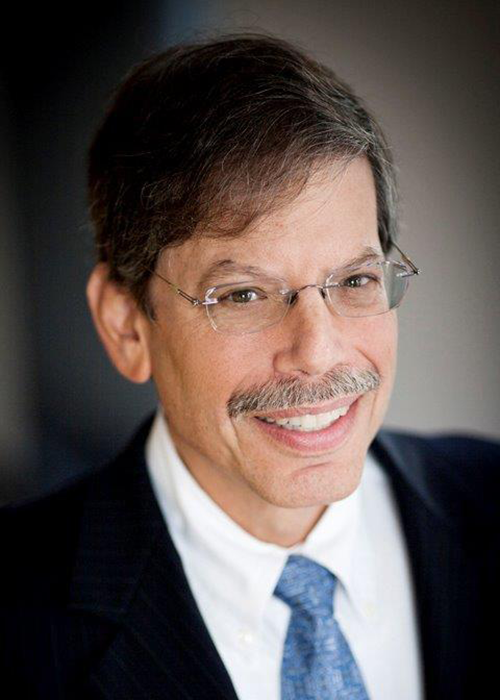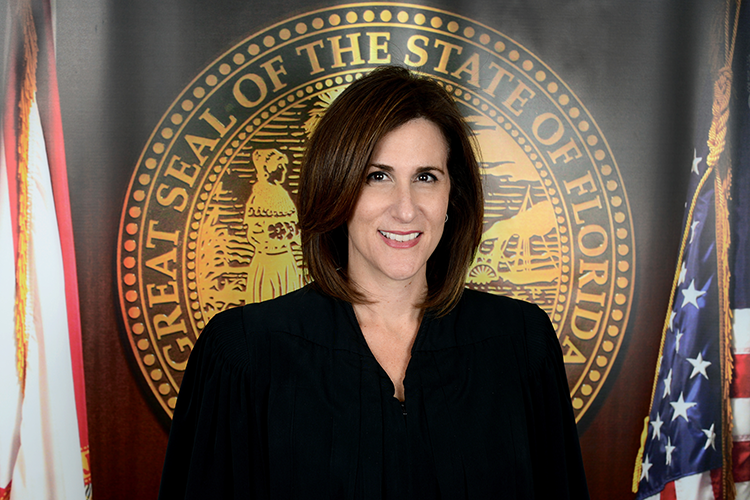ABA project aims to help Afghan legal professionals establish themselves in the United States

Image from Shutterstock.
In the weeks following the one-year anniversary of the fall of Kabul to the Taliban on Aug. 15, the ABA Journal is highlighting the ABA’s efforts to help judges and lawyers from Afghanistan resettle, obtain immigration benefits and secure jobs using their legal skills. This is part one in our series.
In early November, Michael Byowitz attended a virtual program called “Women Judges of Afghanistan: A Call to Action,” and heard the harrowing stories of female judges who fled Afghanistan as the Taliban took over their country.
The program, which was sponsored by the International Law Section’s International Human Rights Committee and featured speakers from the International Association of Women Judges, also described the work of non-governmental organizations to help these judges first find temporary refuge in other countries before resettling in the United States.
“Toward the end of the program, I asked a question, and the question was, ‘What are these people going to do for work when they get resettled? How are they going to make a living?’” says Byowitz, of counsel at Wachtell, Lipton, Rosen & Katz in New York City. “And I specifically asked if there was a route for them to qualify for jobs in the U.S. legal profession, either as lawyers or in other law-related capacities.”
 Michael Byowitz helped launch the Afghan Professionals Resettlement Task Force. Photo by Todd France.
Michael Byowitz helped launch the Afghan Professionals Resettlement Task Force. Photo by Todd France.Byowitz, a past ILS chair, had a potential solution in mind. He proposed connecting the Afghan judges with LLM programs—one-year graduate legal studies programs that expose international students to U.S. law systems and legal reasoning. Some states, including California and New York, allow international students who earn an LLM degree to then sit for their bar exams.
He reached out to then-ABA President Reginald Turner and Executive Director Jack Rives, who told him about the ABA Afghanistan Response Project, an initiative a group of entities, members and staff established in August 2021 to assist with the growing humanitarian crisis. Byowitz shared his plan at one of its meetings and got the green light from then-ILS chair Nancy Stafford to work with their colleagues to put it into action.
Byowitz helped launch the Afghan Professionals Resettlement Task Force, which proposed a pilot program to identify a small number of candidates who are interested in obtaining LLM degrees, taking the bar exam and joining the U.S. legal profession. In June, the Board of Governors approved the pilot program, which will focus primarily on female Afghan judges, prosecutors and lawyers.
“Afghan judges, prosecutors and lawyers are highly educated, trained people who have held positions of substantial responsibility,” Byowitz says. “To utilize their skills to the best advantage for them and for the United States, we should have a program like this.”
Florida task force member sheds light on experiences of Afghan judges
Judge Lisa Walsh talks often with female Afghan judges who now live or plan to live in the United States.
 “They did much the same job that I do but at their own personal risk of harm,” says Judge Lisa Walsh of the 11th Judicial Circuit Court Appellate Division in Miami. Photo courtesy of Lisa Walsh.
“They did much the same job that I do but at their own personal risk of harm,” says Judge Lisa Walsh of the 11th Judicial Circuit Court Appellate Division in Miami. Photo courtesy of Lisa Walsh.As the IAWJ regional director for North America, she assisted in setting up a portal where Afghan judges leaving their country could be matched with immigration counsel for advice or assistance.
Once the judges entered the United States, Walsh worked in her capacity as the international director of the National Association of Women Judges to connect them with mentors to assist with their resettlement, invite them to conferences and introduce them to other law-based organizations that could support their professional goals. She discussed these efforts with the Afghanistan Response Project, which suggested she join the Afghan Professionals Resettlement Task Force.
In recounting the judges’ stories, Walsh—who also serves as the liaison for the IAWJ and NAWJ to the ILS—says many told her they lost everything during their frantic departure from Afghanistan. Some even said they left food on the stove because they heard the Taliban was coming for them.
“They did much the same job that I do but at their own personal risk of harm,” says Walsh, the administrative judge of the 11th Judicial Circuit Court Appellate Division in Miami. “The ones that did anti-corruption trials or narcotics trials or anti-terrorism trials, their trials were televised throughout the country. And even before the takeover, they received death threats. Some of … their family members have been killed because they were related to them.”
“They were willing to put everything on the line in order to carry out their duties,” she continued. “That’s unusual … I think because these are some unusually brave individuals who truly understand the values that we share, that’s why people are so inspired to try to help them.”
One of Walsh’s contributions is providing the task force with insight into the judges’ lives, she says. Most of them resettled in Virginia and California. Some are proficient in English, hold master’s degrees and studied outside of Afghanistan in the United States or the United Kingdom.
Many of them are also struggling to provide for their families, Walsh adds. She explains that Afghan judges take the bench right after law school, and as a result, they are often younger than American judges and also have young children.
“One judge who is in Alexandria has three little kids,” Walsh says. “She is struggling financially and she has advanced degrees, not only her law degree but an advanced degree.
“She said to me, ‘It is my great ambition to get LLM.’ Regardless of the difficulty of it, regardless of how much it will cost and the effort and lack of sleep, she does not want to give up.”
Task force seeks more members, mentors and financial support
Dana Katz also attended the ILS’ November program, which was co-sponsored by its Women’s Interest Network and Middle East Committee.
 “We’re like a startup,” says Dana Katz, the vice-chair of the Afghan Professionals Resettlement Task Force. “We’re iterating as we go.” Photo by David Rosenblum.
“We’re like a startup,” says Dana Katz, the vice-chair of the Afghan Professionals Resettlement Task Force. “We’re iterating as we go.” Photo by David Rosenblum. Katz, immediate past chair and senior advisor of WIN, heard Byowitz’s idea for helping Afghan judges rebuild their lives in the United States and jumped at the chance to get involved. Now vice-chair of the Afghan Professionals Resettlement Task Force, she is working with Byowitz and other members to seek qualified candidates for the pilot program and secure outside funding and partnering entities to support its initiatives.
The task force also plans to provide preparatory law courses as well as identify legal career opportunities that don’t require passing the bar exam. This includes roles as paralegals, compliance specialists or immigration advocates.
“We’re an impassioned group working together under Mike’s strong leadership to help our Afghan colleagues, and in addition, our candidate pool of judges and lawyers is expanding,” says Katz, an attorney who lives in Connecticut. “We’re like a startup. We’re iterating as we go. We’re developing our infrastructure and our materials and hoping to onboard more volunteers and get more people, law firms, foundations and corporations to donate so that we can assist this community.”
In recent months, Byowitz made significant progress in lining up LLM programs for the pilot program. Several law schools have agreed to offer full-tuition scholarships to chosen candidates: Fordham University School of Law, George Washington University Law School, Loyola Law School, Mitchell Hamline School of Law, Saint Louis University School of Law, St. John’s University School of Law and University of Connecticut School of Law.
“We have gotten commitments from seven law schools to provide as few as 11 and as many as 13 full-tuition scholarships,” says Byowitz, who adds that recipients will likely begin their LLM programs in the spring or fall of next year. “There are a number of other law schools that are considering our request, and I have had preliminary conversations with an even larger group of law schools. I am confident that if we had 20 qualified candidates, we would get 20 full-tuition scholarships.”
On Aug. 17, the Afghan Professionals Resettlement Task Force was presented with the ILS’ 2022 Outstanding Project Award.
ABA members who want to support the pilot program can donate funds to help cover candidates’ housing and living expenses, Byowitz says. They can also volunteer to serve as mentors to Afghan judges and lawyers, who will need help navigating their educational programs and careers.
The task force is looking for additional ABA members to help with contracts or other projects and to join its network of immigration attorneys who will provide pro bono counsel to Afghan judges and lawyers seeking permanent residence in the United States.
Attorneys who are interested in volunteering with the Afghan Professionals Resettlement Task Force should contact Michael Byowitz at [email protected] or Dana Katz at [email protected]. Those who wish to donate to the pilot program can select “Afghan Legal Professionals Scholarship” from the dropdown menu at this International Law Section website.
Write a letter to the editor, share a story tip or update, or report an error.



